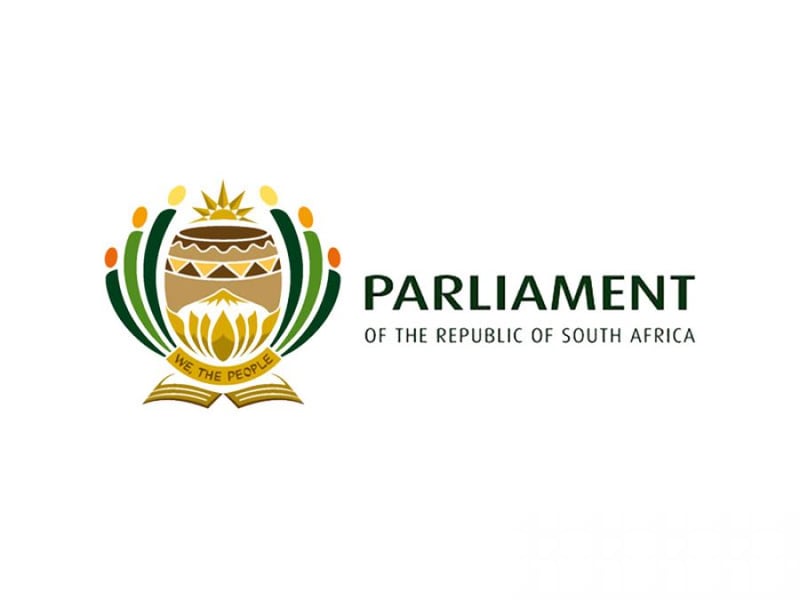Financial Fiscal Commission Briefs Standing Committee on Appropriations
Written by: MyPressportal Team Save to Instapaper
CAPE TOWN, South Africa, May 18, 2017/APO/ --
The Standing Committee on Appropriations was briefed by the Financial Fiscal Commission (FFC) on Tuesday on the 2017 Appropriation Bill.
Committee Chairperson Ms Yvonne Phosa said in her opening remarks: “The 2017 Appropriation Bill essentially entails a reprioritisation of our limited resources within government’s constrained fiscal envelope. In addition to the baseline reductions, funds were reallocated amongst the various government programmes. The FFC will assist the Committee in ensuring that funds are indeed allocated to where they are most needed.”
Briefing the Committee, the FFC said the 2017 Appropriation Bill continues the trend of the 2017 Division of Revenue Bill and fiscal frameworks and revenue proposals by keeping within the expenditure ceilings set by the 2017 Budget Review. As a response to low economic growth forecasts, government continues with the thrust of balancing the need to protect social grants, while targeting non-core and non-performing programmes to cut expenditure, and tax increases.
The FFC said the 2017 Appropriations Bill comes at a time when South Africa finds itself in a strained political environment that has exacerbated what was an already muted economic outlook.
One of the big fallouts of the current political climate is the investment ratings downgrade by two ratings agencies. Ratings downgrades increase the government’s debt servicing costs, which implies:
- Less resources for public spending on infrastructure, social protection and other priority areas, at the very least over the 2017 medium-term economic framework (MTEF) period.
- If the ratings downgrade significantly affects business confidence, the decline in capital investment will be further exacerbated, making the potential for even modest growth more elusive, thus increasing potential for job losses.
- The segment of society that is least insulated from the aforementioned effects of the downgrade are the poor
- History of country downgrades to non-investment grade status shows that countries take significant time to regain investment-grade standing. It is reasonable to expect that repercussions in the economy from downgrades will still be felt in medium- to long-term.
In response to the FFC’s caution on the negative impact by the downgrading, the Committee calls on government to properly understand the consequences on the fiscus of the recent credit downgrades, and the negative impact this may have on service delivery over the short- to medium-term period. It also calls on the government to outline measures to be taken to address the negative impact these downgrades could have on frontline services, job creation and economic growth.
The objective of the Bill is to appropriate money from the National Revenue Fund for the requirements of the State for the 2017/18 financial year; to prescribe conditions for the spending of funds withdrawn for the 2018/19 financial year before the commencement of the Appropriation Act for the 2018/19 financial year; and to provide for matters incidental thereto.
The Committee remains concerned about a number of issues, such as supporting the agricultural sector; the performance of developmental institutions such as the Land Bank; manufacturing; preventing fruitless and wasteful expenditure; ensuring basic controls are in place; transport; performance in education and health sectors; funding for Technical and Vocational Education and Training (TVET) and provision of necessary skills; and the effective functioning of governance committees such as Internal Audit, Audit Committees, Risk Committees and Monitoring and Evaluation Unit. The Committee feels strongly that issues of performance in key government programmes must be resolved.
Ms Phosa raised concerns about the increase in irregular, fruitless and wasteful expenditure over the years, the lack of capacity within departments to carry our basic functions and establish basic controls, and how to enhance the roles of the Department of Public Service and Administration and the Department of Planning, Monitoring and Evaluation in supporting departments to deliver on their mandates.
The briefings received on the 2017 Appropriation Bill serve as a precursor to public hearings on the Bill scheduled to be held in Khayelitsha on 24 May 2017.
Distributed by APO on behalf of Republic of South Africa: The Parliament.
Latest from
- South Africa- Police Chairperson Welcomes Service Interventions, Especially Adoption OF Technology And Capacitation OF Detectives
- Rainmaker Marketing Partners With Hirsch's Homestores
- Effie Lions Foundation Launches TO Futureproof The Marketing Industry
- How TO Write Emails South Africans Want TO Read (and DON'T Mark As Spam)
- The Rise OF Shopping Malls As Experience-driven Marketplaces
- Startup Community Wolf Secures R8M TO Scale Public Safety Platform
- How Young South Africans Are Redefining The Hospitality Industry This Youth Month
- Johannesburg Builds ON Its Top Position As Africa's Premier Data Centre Market
- Dentsu Digital INC. Awarded New York Festivals 2025 Best OF Show Award
- Seacom Appoints Digital Infrastructure East Africa And Middle East Managing Director
- Advertising For Employment - How Youth Are Marketing Themselves Like Products
- Phefeni Secondary School TO Host Soweto Youth DAY Career Expo
- Lesedi Lehasa, A Trade Quality Specialist, Is Shaping SAB's Quality Standards
- Manors And Reebok Declare War On Golf Buggies With Bold 'No Thanks I’ll Walk' Campaign
- Vodacom TO Invest R100m In 106 New Rural Base Stations Across KZN
The Pulse Latest Articles
- This Father’s Day, Raise A Pura To The Dads Who Keep It Real (June 13, 2025)
- Winter Hydration Just Got A Glow Up (June 10, 2025)
- Work From Anywhere: Emails, Elephants & Espresso: The New Office Life (June 10, 2025)
- Xlink Crowned Technology Company Of The Year At The Africa Tech Week Awards 2025 (June 5, 2025)
- Celebrate International Day Of Play With The Weirdest (and Most Wonderful) Toys Of 2025 (June 4, 2025)
